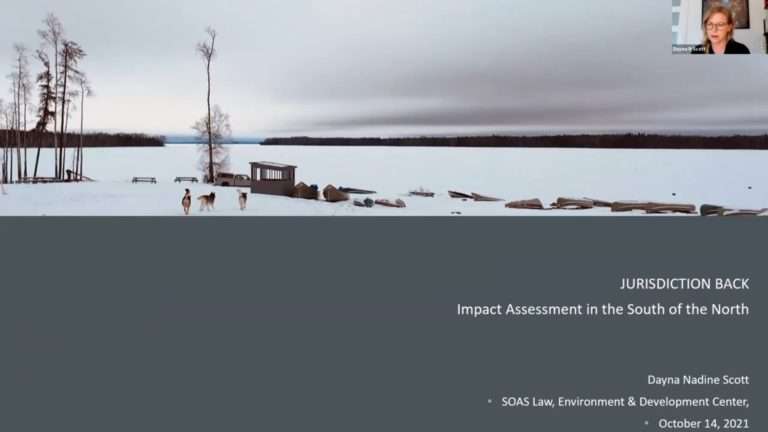Research
What does it mean to let nature take its course?
By: Tiffany Joseph | There are a number of things we could experience or be born into within that the colonial Western mindset that would render us “damaged goods” that are not worth our investment. So, what is the value or importance of healing? And how are we reframing minds, and ways of thinking, that reflect the holistic ways of thinking within our cultures?
Policing Jurisdiction
By: Shiri Pasternak | Jurisdiction offers a rich framework for understanding the terrain of struggle upon which colonial theft is fought in Canada. In my work, I argue that while settler law is asserted as a universal system applied evenly within the boundaries of the nation state, it is in fact a politically and spatially contested claim against Indigenous laws of territorial belonging.
Jurisdiction beyond space, toward time
By: Heidi Kiiwetinepinesiik Stark | While Anishinaabe understandings of creation have largely shaped and shifted my understandings of sovereignty and its relationship to jurisdiction, I find that my understandings of jurisdiction have been largely contoured by examinations of state assertions of sovereignty. Furthermore, the failure of the conceptual work of sovereignty to ground political authority in a meaningful way for many people has necessitated a shift of our attention to jurisdiction.
Infrastructure in the service of future imaginaries
By: Anne Spice | The reclamation and appropriation of the terminology of “infrastructure” challenges the state's weaponization of that language. It is a reclamation and transformation of Canadian legal language that reifies and legitimizes forms of material invasion, among them colonial materializations like pipelines that are being built through unceded Indigenous territories.
Settler colonial infrastructures and infrastructure otherwise
By: Deborah Cowen | What is infrastructure? I think about infrastructure as matter that shapes motion itself. Brian Larkin (2013) suggests that infrastructures “comprise the architecture for circulation.” Infrastructure can underpin and sustain motion and circulation, but it can also inhibit, disrupt or foreclose motion.
Extractivism: The post-extractivist future is a decolonial future
By: Dayna Scott | Scholars have long emphasized how violent the classic extractivist economy is in generating benefits for distant peoples and economies to the detriment of local peoples and ecosystems. This obvious imbalance, or non-reciprocity, is a defining characteristic of the relation. Extractivism is also oriented to the short rather than long term and is organized around external demands and priorities. In other words, the need for the taking comes from somewhere else.
By: Dayna Nadine Scott | In Canada, it has been dramatically demonstrated over and over again that when corporate interests thrust contested projects onto Indigenous homelands they must still contend with Indigenous governing authority.






